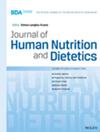A Meta-Synthesis Exploring Daily Experiences of Adults With Coeliac Disease in Adhering to a Gluten-Free Diet
Abstract
Background
Coeliac disease (CD) is an autoimmune disease affecting 1.4% of the population worldwide. The only treatment for this condition is a strict, lifelong gluten-free diet (GFD). Although the complexity of this condition is recognised, the definitive follow-up strategy and long-term management have still not been developed in the United Kingdom (UK) and Australia. This meta-synthesis aimed to explore the experiences of patients living with CD who follow the GFD in the UK and Australia.
Methods
A systematic search for primary qualitative literature related to experiences of patients with CD on a GFD and a meta-synthesis of the results were conducted. Healthcare-relevant online databases were screened: Academic Search Complete, CINAHL, MEDLINE, and Scopus, followed by reference list searching. A defined inclusion criteria were used to identify relevant studies. The data synthesis from the literature followed the thematic synthesis approach. A clear description of the methodology and peer review were applied to ensure transparency.
Results
A total of 286 studies were screened for eligibility. Of those, six studies met the inclusion criteria. The experiences of 198 patients living with CD were analysed and reported. Five analytical themes emerged through the thematic synthesis process: acceptance and adaptation, dietary burden, cost burden, socialising, and importance of support. All themes were found to impact patients' quality of life (QoL). The overall quality of the reviewed studies was described as good.
Conclusion
This meta-synthesis revealed insights into the daily experiences of patients with CD in adhering to a GFD in the UK and Australia, being the first secondary qualitative study to explore this phenomenon. It highlighted the need for the development of defined strategies for patient follow-up to provide holistic care, considering the complexities of this condition and its impact on both physical and psychological domains.


 求助内容:
求助内容: 应助结果提醒方式:
应助结果提醒方式:


